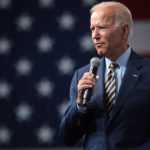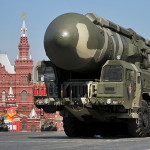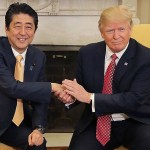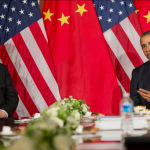Tag: United States
Why the American Public is Less Polarized on Foreign Policy

Matthew Rochat argues that though the American public has grown increasingly divided on issues of domestic politics, foreign policy has not been subjected to the same level of political polarization. He explains why in his analysis for the Foreign Policy Project.
Black Mirror Statecraft: Combating PRC Hostile Social Manipulation and Sharp Power in an Era of Great Power Competition

Jonathan Lushenko provides his insight on what he terms Black Mirror Statecraft to describe China’s sharp power through hostile social manipulation to exploit democratic ideals of free speech and press to weaken the Liberal International Order in pursuit of broader PRC objectives. Lushenko offers policy prescriptions for the U.S. to enhance its public diplomacy and strategic communications efforts to counter the PRC’s Black Mirror Statecraft.
President Biden: Try for a Double Play on Iran and Afghanistan

As the US and Iran navigate through the current impasse in restoring the nuclear deal amid the Taliban takeover of Afghanistan, Jon Greenwald provides his views on how these concurrent challenges justify a new strategy for dealing with them that cuts across both situations.
The U.S. and Hungary: Friends in Need of a Better Way

How the United States Can Support Nascent Political Parties

Patrick Quirk and Jan Surotchak describe how the United States can support nascent political parties around the world, particularly as the U.S. faces great power competition with authoritarian regimes.
U.S. Position in Rohingya Crisis Echoes Past Inaction

In her contribution to the Foreign Policy Project, Gwyneth Bernier highlights U.S. inaction in protecting the Rohingya from genocide.
The Plutonium Disposition Management Agreement: Russia’s Withdrawal and the Possible Consequences

Debalina Ghoshal discusses Russia’s suspension of the Plutonium Disposition Management Agreement with the United States for the Foreign Policy Project.
Make Japan Great Again? The Rise of Trump and Significance of the US-Japan Alliance

Fuad Olajuwon discusses the alliance between Japan and the United States a few months into the Trump administration.
Keep John Kerry—As President Hillary’s Iran Envoy

In his piece for the National Interest, the Council’s Navid Hassibi argues why keeping John Kerry as Presidential Envoy for Iran would make sense in a Hillary Clinton administration.
Why the Next President Must Focus on Asia

In his piece for TIME, the Council’s J. Berkshire Miller argues why one of the critical issues that needs to be addressed after the election in a bipartisan manner is maintaining—and indeed strengthening—the trajectory of US efforts to “rebalance” its resources and attention to the Asia-Pacific.
